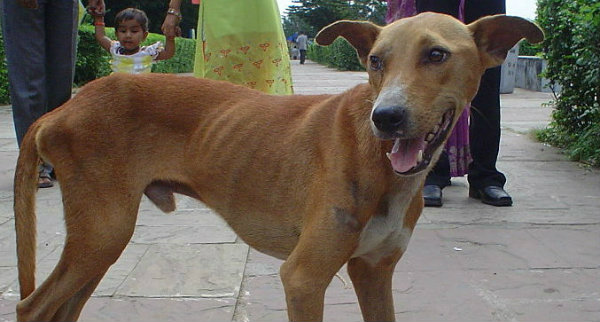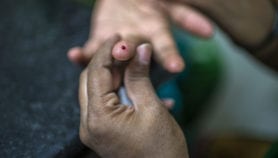By: Smriti Daniel
Send to a friend
The details you provide on this page will not be used to send unsolicited email, and will not be sold to a 3rd party. See privacy policy.
[COLOMBO] Sri Lankans, aged 60 and over, are more likely to die of rabies than their younger compatriots, says a new study.
The findings, published last month (31 May) in Infection, Genetics and Evolution, indicate that school awareness programmes and proactive surveillance have helped younger people receive timely treatment for the infectious disease.
Older victims tended to delay seeking treatment. Many were found to have developed rabies within three months of exposure — bite or scratch of an infected mammal — and died within a day of hospitalisation.
Dogs were identified, in the study, as the main rabies transmitting animal on the island, but cats pose a threat too. Treatment involves injection of antibodies and activation of the immune system with a rabies vaccine.
Human rabies remains a notable disease in Sri Lanka, though the numbers of reported human deaths have dropped from 49 in 2010 to 38 in 2012.
Globally, human deaths from rabies are estimated to be around 55,000 annually with over 31,000 of fatalities occurring in Asia.
Rabies is endemic to Sri Lanka and post-exposure treatment is given free of charge through government hospitals. According to the study, Sri Lanka's health ministry spends US$1.5 million on treatment of the zoonotic disease every year.
"Sri Lanka is in the process of strengthening the rabies programme through vaccination and by sterilising female dogs for population control," Omala Wimalaratne, a co-author of the study and head of the rabies department at the Medical Research Institute in Colombo, told SciDev.Net.
"The programme also works on creating awareness in the community on responsible pet ownership and environmental sanitation," Wimalaratne said. The approach seems to have paid off, with Sri Lanka now having the lowest number of rabies deaths in Asia after Thailand.
"Once clinically apparent there is no treatment for rabies, it has 100 per cent mortality," says Kamruddin Ahmed, associate professor at the infectious diseases division of the Research Promotion Institute, Oita University, Japan.
Ahmed told SciDev.Net that "the Sri Lankan rabies virus is unique and different from those which are circulating in neighbouring India or Bangladesh."
While no new rabies virus variant has been introduced from neighbouring countries to Sri Lanka, the rabies viruses were gradually evolving.
Rabies virus variants had been observed in wild animals but no humans were found to be affected by them. "Based on that finding we may suggest that the rabies cell culture vaccines which are in use in Sri Lanka will be effective," says Ahmed.
Link to abstract in Infection, Genetics and Evolution














